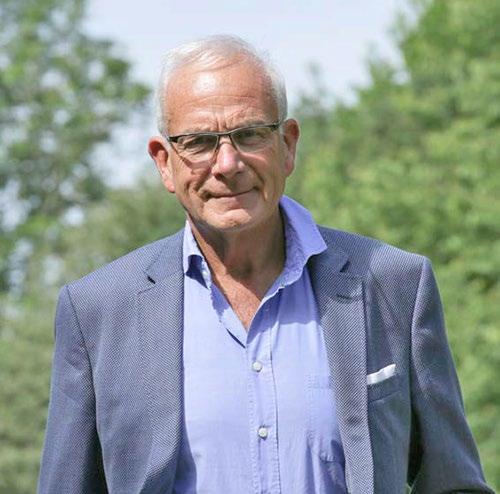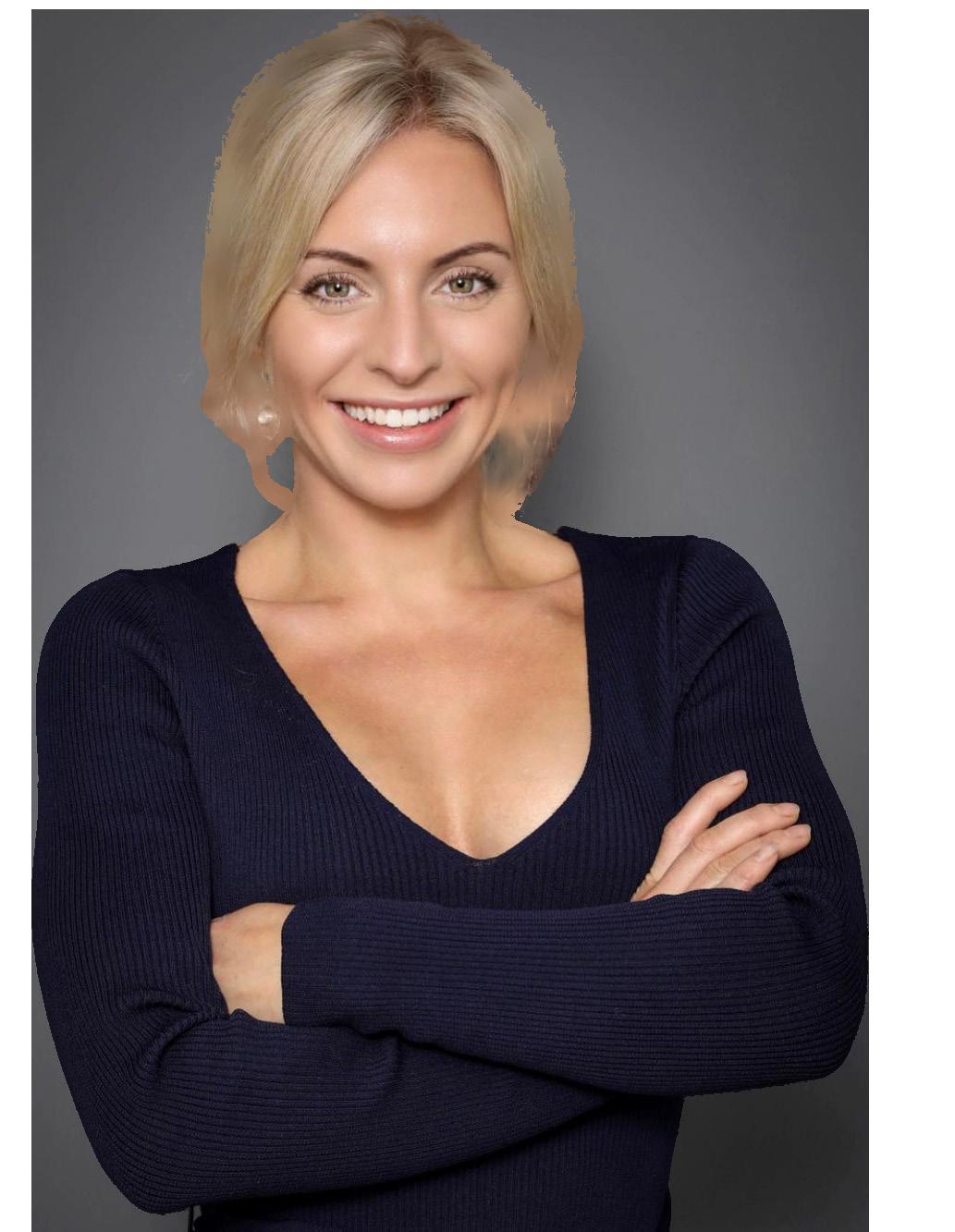
8 minute read
Aiming for the top spot
In his quest to make Caremark the biggest care provider in the UK, CEO Kevin Lewis is looking for 80 new franchisees. “You can make a phenomenal amount of money,” he tells Elite Franchise
It’s hard not to get caught up in Kevin Lewis’s enthusiasm as he spells out his expansion plans for Caremark, the homecare franchise that’s surfing a demographic wave. As the UK population grows older and ever larger, the founder and chief executive sees nothing but promising signs ahead.
“We’re looking for 80 people out of a population of 64 million who are very ambitious and want to make a lot of money with their own business,” he says. “They like the idea of care and they want to put something back into their community.”
That he’s passionate about his business is apparent from the get-go. Then again, he has reason to be. The Caremark network, grew on average 20% in 2020. “We would have grown anyway, because we grow every year,” he says – but Covid-19 has put rocket boosters under that growth.
To be blunt, it’s been a terrible year for residential care homes’ public image. “Most people are far happier to stay in the comfort of their own home and have people come in and look after them,” says Lewis. “And we can do that for an hour a day, or an hour a week, or 24/7. We are completely flexible. We will tailor our care service to meet an individual client’s needs.”
The homecare revolution
In 1987, Lewis was a sales executive in the Brighton area, renovating properties as a sideline and selling them on. His introduction to the care sector came after he viewed one of the largest houses in Hove, which was out of his price range until he hit on the idea of converting it into a nursing home. “In those days, you could look after three elderly people without requiring registration from your local authority,” he explains.
“So, we were still doing the building work when we got the first lady to move in. She was an 89-year-old Welsh lady called Rae and she had no one in the world. No family, no friends, no money, nothing. And I suddenly felt this incredible sense of responsibility to her. That’s when I realised I had some kind of affinity for care – for caring for vulnerable people.”
The residential home grew over time, until it was registered for 20 residents – only for John Major’s government to pass the NHS and Community Care Act, which in 1993 turned the sector on its head. From then on, the emphasis would shift towards commissioning care from the independent sector to look after people in their own homes.
“In about September 1993, I set up my own little domiciliary care business as a sole trader and called it Carewatch,” says Lewis. “It grew very, very, very rapidly – in fact, we got to a turnover of over £1 million in the first 18 months.
“I knocked out most of the competition because I came in with much more competitive fees. But I was getting serious complaints every week because, whilst I understood something about care, I didn’t understand the logistics of getting all these carers to a growing number of clients in a large geographical area.”


Faced with the dilemma of either giving up Carewatch as a bad job or making it work, Lewis analysed every problem he’d encountered and devised processes, systems and procedures to prevent them recurring. “I eventually ended up with all this documentation, which, edited down, became the first operations manual. And I thought, ‘Wow, I’ve got something here I could actually franchise.’”
He thought it would take six months for complaints to drop sharply. “In fact, there was a massive improvement in less than two weeks,” he says.
Heartened by the manual’s success, he then converted Carewatch to a limited company and began to recruit franchisees. “My goal was to be the market leader, which I achieved in 2001,” he explains. At this point, a PLC offered to buy the business off him – but as soon as he’d signed on the dotted line, he regretted it.
“Leaving their office, feeling very downhearted, I suddenly thought, ‘It’s OK, I’ve got a solution,’” he says. “That solution was to start again.”
A new beginning
Since he was bound by a non-compete clause, Lewis couldn’t set up Caremark until 2005. This required a new operations manual, so he set about researching how the law had changed since 2001. To his amazement, many of the procedures he’d introduced at Carewatch were now on the statute books.
“I never got any recognition for that, but that’s fine,” he says. “I’m sure the government looked at how we were operating. But you know, these things aren’t rocket science. It’s just pure common sense.”
With this many achievements to his name, it wasn’t long before Caremark started to attract franchisees. “Over the years, we’ve had an army colonel, a Royal Navy helicopter pilot trainer, psychiatrists, GPs, nurses, marketing people, quite a few accountants, car dealers… Just about every walk of life you can imagine,” says Lewis.
“What is important first and foremost is that they actually do care about other people. Probably after that, it’s having a good business brain or business acumen. That doesn’t mean they have to have had an amazing track record in running their own business, but they need to understand business and what it’s all about.”
A few franchisees have previously worked as care workers or care managers. “Generally speaking, that isn’t good,” he says, repeating his point about having an affinity for business. If you’re ambitious and prepared to work hard, however, “you can make a phenomenal amount of money out of these businesses”.
Lewis’s rationale is that as the population ages, the homecare market is expanding more and more. “I’ve never ever been able to work out what is the maximum potential for one of these businesses in a population, say, of 130140,000 people, because you work out what the potential is today, and then tomorrow it’s got bigger,” he says.
“I mean, our top people would be earning in excess of half a million, getting on for £1 million a year. That’s profit before tax.
“Not everybody does that, because as you would expect, we’ve got people at the top, people in the middle and people at the bottom. To get to the top, you need the qualities I’ve mentioned and the ability to stick to the proven system.
“I initially put the basic model in place in 1993/94, in Carewatch, and that model has been refined and improved ever since.”
Keeping fees low
The Caremark model is designed in such a way that franchisees who follow it to the letter will grow, which benefits the company overall, says Lewis. “We cover everything,” he adds. “Launching, registration, developing their business, recruiting care workers… Obtaining clients, matching care workers to clients, using the software… How to recruit staff, how to train staff… What kind of office to look for…”
When asked what distinguishes Caremark from other care franchises, he says that most of his rivals used his original, market-leading model as a blueprint. “Some talk about companionship – they exclude personal care, and local authority and NHS work – whereas we do the whole lot. So, pretty much we’ll provide care for anyone in need of care who wishes to remain safely in their own home.
“What else makes us different? Well, the management service fee (MSF) that we charge each month is the lowest. When I started Caremark, I set the MSF at what I believed was a fair rate, which is 4.5%. All the other domiciliary care franchises have come in with a higher rate of MSF, and I’m sorry, but that’s greed. I make a lot of profit each year and I do not need to charge more than 4.5%.
“Another difference, if you like, is me. I don’t personally need to make any more money.
I’m the sole shareholder of the business. I’m totally passionate about it and I totally believe in providing the very highest standards of care for all clients.”
The fact that some franchisees own multimillion-pound businesses is a testament to the Caremark model, he says – but the company’s ambition to be UK market leader hasn’t quite been achieved yet.
“There are about 8,000 care providers in the UK and last year, we were ranked at number seven. That’s fantastic, but I want to be number one,” he says. “I can’t do that until I’ve completed the network, so I need roughly another 80 franchised offices. We’ve got the formula right, we just need more offices.”
It’s a matter of pride that he’s twice made a success of launching a franchise business in the care sector. “I’m proud every time I see a letter from a client saying, ‘Thank you for what you’re doing, it’s made such a difference to our life,’” he adds.
“I’m also proud to see care workers get promoted through the ranks. And from a hard-nosed business point of view, I’m very proud of the profits that the company generates.”
In fact, the strength of the Caremark brand is constantly in his thoughts when he’s at franchise conferences. “I look around to see which industries offer an opportunity as good as this one,” he concludes, “and I can’t see them.”
Achieve your potential in a thriving sector
Invest in a Caremark care at home franchise
Hannah Drury Franchisee, Caremark (Sutton) & Caremark (Epsom & Ewell, Reigate & Banstead)

01903 266 392








